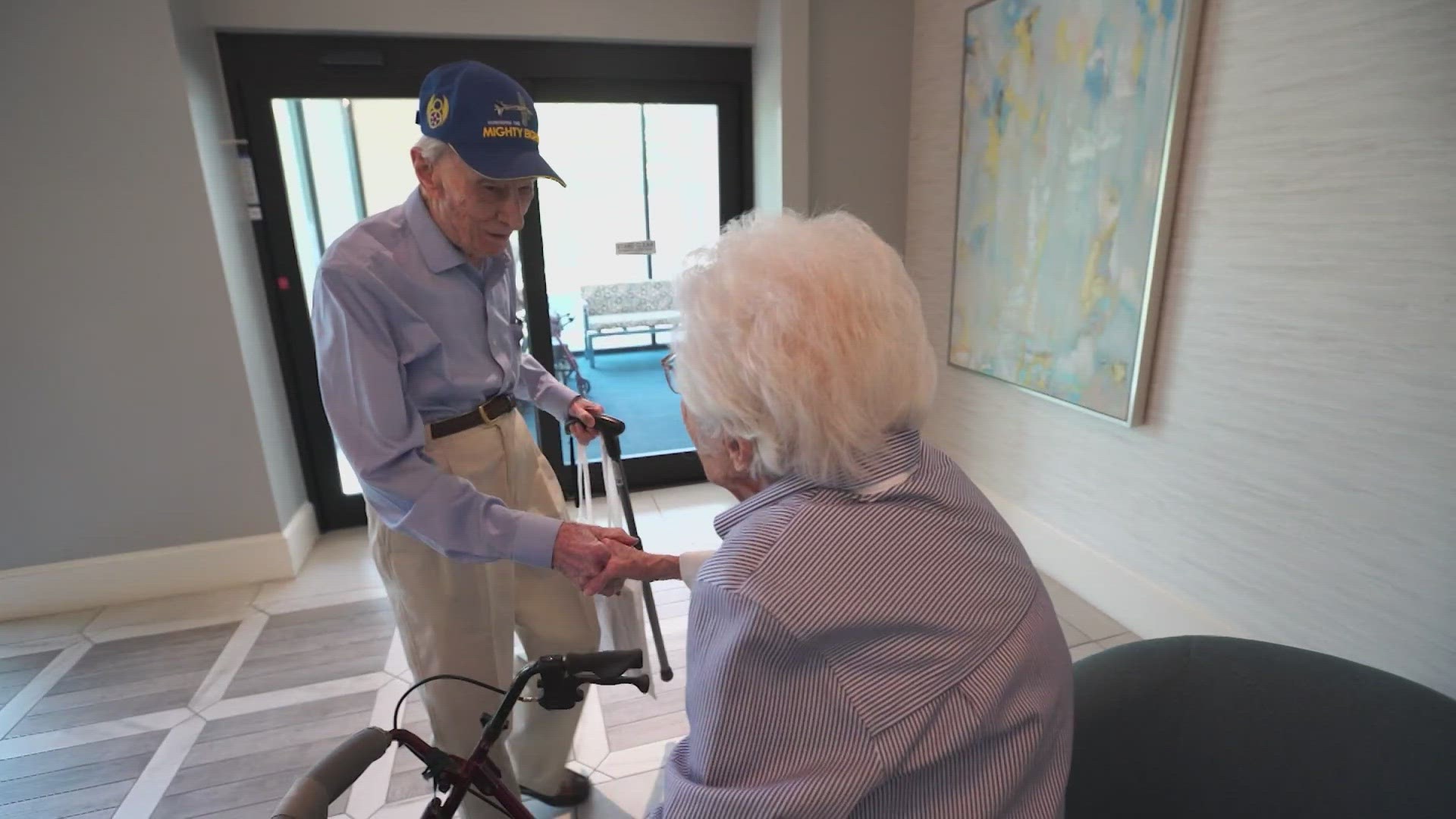PLANO, Texas — It's not often that you can get two 101-year-olds together for a conversation, much less two 101-year-olds who will politely disagree with each other over which one is truly an American hero.
The answer - is both.
John "Lucky" Luckadoo is a certified hero, even if the celebrated WWII pilot doesn't much care for the word. Raida Snyderman first heard about him in his biography called "Damn Lucky."
"I read it and I was fascinated," Snyderman said. "Because it put you in the seat. And you felt it!"
He's a hero, she said, "because of what he did during the war."
And because of what he did, on a recent Saturday afternoon.
"Oh, you must be Lucky," she said as Luckadoo appeared in the lobby of Presbyterian Village North.
"Don't get up, don't get up Miss Snyderman," he said as she rose to meet him.
"I am so glad to meet you," she said.
"Well thank you, I'm so happy to meet you," he replied.
The meeting was arranged by Raida Snyderman's daughter Alyson Cate, because Snyderman is someone who Lucky has always considered a hero too.
"It certainly overwhelms me that I was, accidentally, a part of history," he said. "It was just a matter of sheer luck as to whether you survive or not," he said of the bombing missions he survived in WWII.
"I wasn't just lucky, I was damn lucky," he said of the 25 B-17 bombing missions he survived over France and Germany enduring sub-zero temperatures in flights that would freeze his boots to the airplane pedals. The average bomber crew rarely survived as many as 12 missions.
"I didn't talk about it for 50 years," he said.
"Because when I came home I was at loose ends," he said of what would likely be diagnosed as PTSD today.
But Luckadoo did agree to talk about it again, because he doesn't consider himself the only hero on the room. For several years now, he's campaigned for a national holiday, a Home Front Heroes Day, to honor all those who weren't on the front lines but helped America win the war at home. People like a young housewife named Raida Snyderman who signed up to be a volunteer nurses aide and helped in stateside hospitals in Little Rock, Arkansas.
"It humbles me to think that we have never said thank you. Because without you, we never would have prevailed," Lucky said. "We couldn't have done it without you," he said.
"Without people 'like' me," Snyderman replied.
"Without all of you," Luckadoo said.
And more Home Front hero-type stuff would also come later. Raida Snyderman's name is included in a monument in Arkansas: a tribute to dozens in the 1950's who helped Little Rock - integrate public schools.
"And that's what she was fighting to change," Raida Snyderman's daughter Alyson Cate said. "She is a hero to me in that regard."
And during that visit between two 101-year-olds, as they reminisced over good times and bad, one more thing was obvious. Heroes have one more thing in common: they think they are not.
"I don't think that I could compare his service to mine," Snyderman said. "Those that fought eye-to-eye and got up every day and went back to work the next day, I have my greatest respect for."
"If a young kid like me, is it OK if I consider you both heroes? Is that OK," I asked them both.
"That's OK," she replied. "I don't consider myself a hero."
"I'm uncomfortable with the term too," Lucky laughed.
Uncomfortable, maybe. Worthy, yes.
"The reality is that we have to help those that can't help themselves," Lucky said of the military and civilian assistance they both provided during WWII and beyond.

